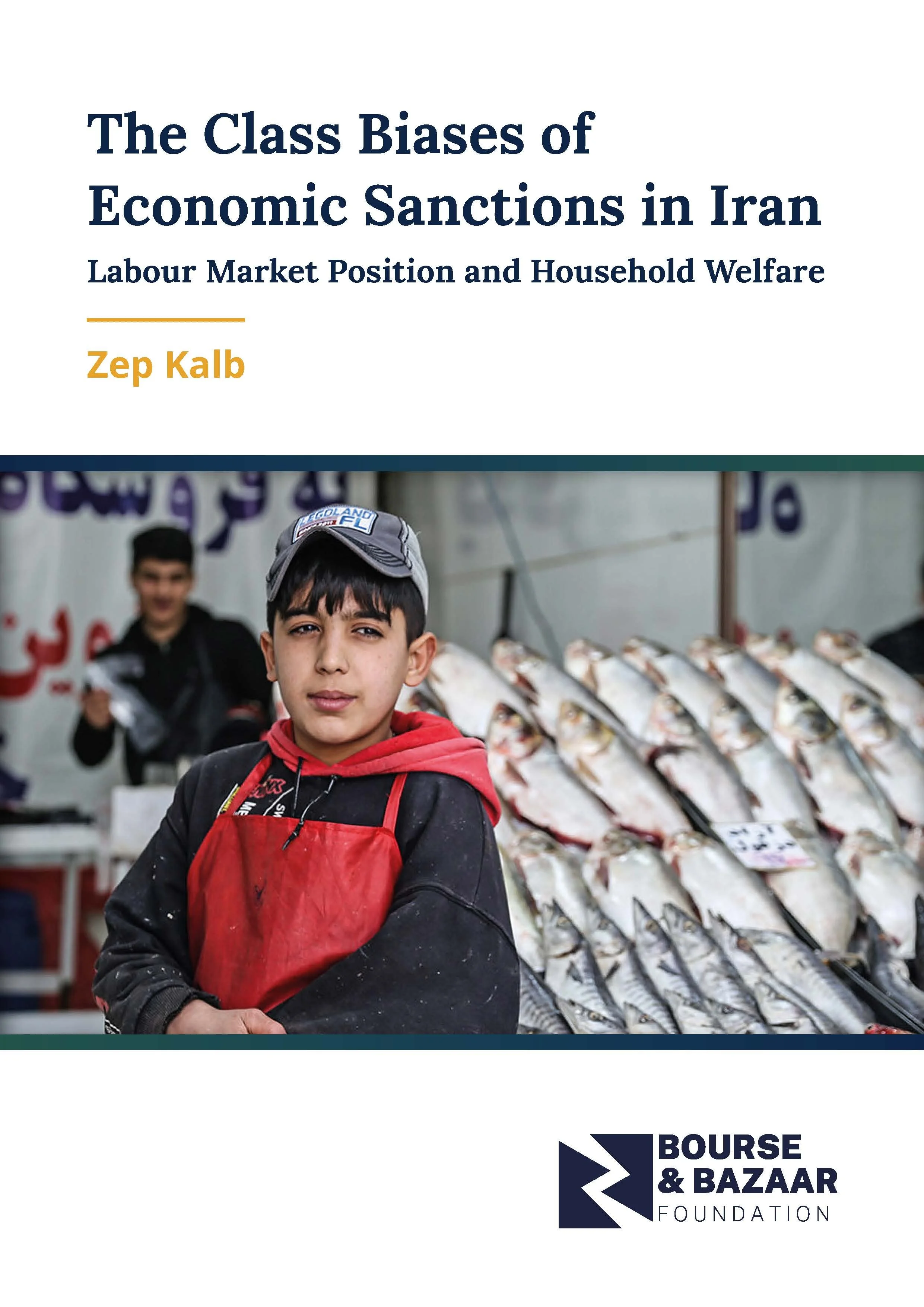The Class Biases of Economic Sanctions in Iran
Download Report
July 2023 - 25 Pages
Please enter your name and email address below to download the full report. After entering your details, a download link will appear in the space below.
Executive Summary
This report evaluates the effect of economic sanctions on household welfare in Iran between 2010-20, using data from the annual Household Expenditure and Income Survey (HEIS) published by the Statistical Center of Iran. The report takes an occupational class approach to understand how the impact of sanctions was mediated by households' position in the labor market. Key findings include:
Household consumption and welfare were severely affected by the sanctions imposed on Iran since 2010. On average, households reduced their expenditures by a fifth between 2010 and 2020.
Occupational class substantially mediated the impact of sanctions on household welfare. Social groups fared differently in the sanctions period based on their position in the labor market. Agricultural workers and state employees were hit especially hard by sanctions.
Government policymaking exhibits class and group biases. However, political elites generally failed to protect their constituents from the adverse impact of sanctions.
Sanctions relief in 2016-2017 was associated with a rise in household welfare across Iran’s occupational classes.
The class biases of sanctions effects reveal gender, ethnic, and regional intersections that shed light on recent protest movements led by women and minorities in Iran.
About the Author
Zep Kalb is a PhD Candidate in the Department of Sociology at the University of California Los Angeles. Zep was a 2021 Visiting Fellow at the Bourse & Bazaar Foundation. During his fellowship Zep conducted research on how economic reforms and economic pressures, including sanctions, have impacted Iran's occupational class structure.






